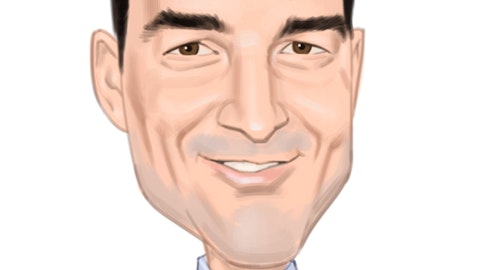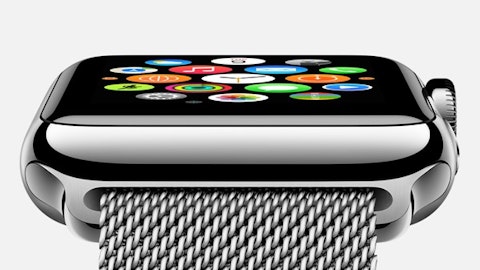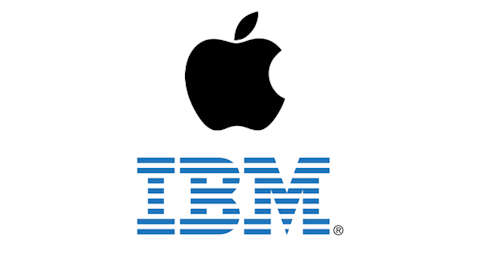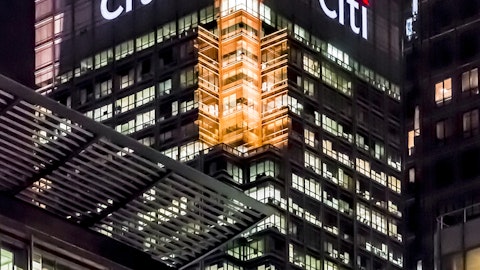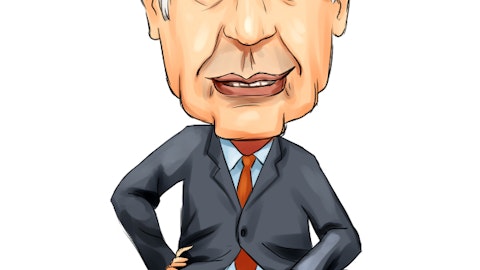The first three months of 2015 had a number of interesting developments, which in one way or another had an impact on the stock markets and investors’ sentiment. US GDP growth slowed down to nearly a standstill, inching up by 0.2%, which was however impacted by bad weather and strikes at ports on the West Coast and is not viewed as a decrease in momentum by the majority of analysts. Investors are still waiting for the Federal Reserve to raise interest rates, which is not expected to happen at least until the second half of 2015. The S&P 500 inched up by around 1% in the first three months of 2015 and currently sports a median P/E of around 21.00. Moreover, there have been a number of transactions and developments that tipped investors’ sentiment regarding particular companies. As usual, after each round of 13F filings, the last of which ended on Friday, we compile the data from the equity portfolios of more than 730 investors in order to identify the stocks investors like the most, as well as companies that they are not so fond of. We also compare the popularity of stocks on a quarter-on-quarter basis to see how the opinion of investors changed throughout a particular quarter.
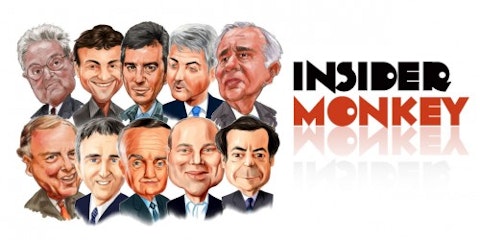
Many consider that 13F filings cannot provide any investment opportunities, because of the maximum 45-day delay in each filing period. However, we managed to prove that it is not true as we conducted a series of backtests and used a 60-day delay to be on the safe side (read more details about piggyback investing here). We determined that imitating a portfolio of the 15 most popular small-cap ideas among hedge funds managed to beat the S&P 500 Total Return Index by nearly one percentage point per month and generated a double-digit alpha per year between 1999 and 2012. On the other hand, the50 most popular stocks, which are mostly represented by large- and mega-cap companies underperformed the market by around seven basis points per month. Since we launched our small-cap strategy in August 2012, it has returned 139%, outperforming the S&P 500 ETF (SPY) by more than 80 percentage points.
With this in mind, let’s take a look at the top ten most popular stocks among the funds that we track as of the end of March. As has been mentioned earlier, there have been some developments that impacted the popularity of some stocks. This is the case for Actavis plc (NYSE:ACT), which managed to climb to the first position from third in the previous quarter (see the previous top 10 most popular stocks) as 157 funds reported holding in aggregate $21.97 billion worth of its stock. Therefore, investors hold nearly 19% of Actavis’ stock, as it climbed by more than 15% during the January-March period. Therefore, the number of funds with long positions in Actavis plc (NYSE:ACT) increased from 131, but the aggregate value of invested capital surged from $14.00 billion as of the end of December. One of the reasons for this popularity growth is the completed acquisition of Allergan in March, which involved a price of $129.22 in cash and 0.3683 shares of Actavis per each share of Allergan. Taking into account that the popularity of Allergan surged during the last six months of 2014 as the company was in the middle of a proxy fight with Bill Ackman‘s Pershing Square, which tried to push for a sale to Valeant Pharmaceuticals Intl Inc (NYSE:VRX), it’s not surprising that following the acquisition of Allergan, Actavis gained a number of new shareholders. For example, Pershing Square disclosed a new position of 1.35 million shares. Stephen Mandel’s Lone Pine Capital also “re-added” Actavis plc (NYSE:ACT) to its equity portfolio, reporting ownership of 1.83 million shares after selling 2.48 million shares during the last quarter of 2014 (it did not disclose holding shares of Allergan in its 13F as of the end of 2014).
Investors in Actavis plc (NYSE:ACT) have a number of things to be looking forward to. The acquisition of Allergan was the last in a line of purchases made by the Dublin-based pharmaceutical company, which is on a path to solidify its position as one of the leading pharmaceutical companies in the world, with a large portfolio of generic and original drugs. Its last financial report surprised the market with 59% annual growth in revenue and 23% growth in earnings.
On the other hand, Apple Inc. (NASDAQ:AAPL), even though it had an outstanding performance, slipped to the second spot, although the number of funds holding shares grew by one to 150 investors, which held a total of $21.52 billion worth of stock, versus $20.88 billion a year earlier. As usual, the largest shareholder of Apple among the funds we track is billionaire Carl Icahn’s Icahn Capital, which owns 52.76 million shares (unchanged over the quarter). The value of Icahn’s stake increased to nearly $6.57 billion from $5.82 billion as the stock appreciated by 13.2% during the first quarter. Compared to Actavis, investors own a tiny portion of Apple Inc. (NASDAQ:AAPL), with their aggregate ownership representing less than 3% of its market cap and Icahn’s stake amassing just 0.9% of the outstanding stock. Icahn has been expressing his bullish sentiment regarding Apple Inc. (NASDAQ:AAPL) pretty much ever since he bought his first shares. A couple of weeks ago, he said during an interview that he is very confident about the company and prefers to buy more shares when the stock loses some ground. A new letter to Tim Cook was disclosed earlier today in which Icahn stated a price target of $240 per share and urged the CEO to further increase the buyback program, which was already increased by $50 billion to $140 billion. Apple Inc. (NASDAQ:AAPL) managed to beat the earnings and revenue expectations for the last quarter and Icahn forecasts EPS of $12.00 per share for the Fiscal Year 2016 (versus $6.50 for FY2014), which gives the stock a P/E multiple of around 18.x. Icahn considers this P/E “conservative” if the company enters two new markets (Television and Automotive, as it is currently expected to do). Another shareholder of Apple Inc. (NASDAQ:AAPL) is Ken Fisher’s Fisher Asset Management, owning 10.81 million shares as of the end of March.
On the third spot is Facebook Inc (NASDAQ:FB), in which a total of 129 funds reported stakes worth $7.09 billion. Interestingly enough, the number of funds holding shares went up from 118 a quarter earlier, but the value of capital declined from $7.90 billion at the end of December. Facebook Inc (NASDAQ:FB) is celebrating three years since its IPO, which was labeled as “disastrous” by many, but the stock more than doubled during this period as the company beat the estimates for ten straight quarters until recently, when its results for the first three months of 2015 came mixed with revenue of $3.54 billion missing the forecast of $3.56 billion on the back of foreign exchange rate fluctuations. However, the company managed to post user growth to 1.44 billion and showed solid growth on the mobile front. Among the shareholders of Facebook Inc (NASDAQ:FB) are Philippe Laffont’s Coatue Management with 7.91 million shares, up by 733,300 shares over the quarter, and billionaire Julian Robertson’s Tiger Management, which disclosed holding 320,300 shares (up by 2,800 shares on the quarter). In an interview at the beginning of April, Robertson put Facebook Inc (NASDAQ:FB) in a list of “great growth companies” alongside Google and Apple.
Citigroup Inc (NYSE:C) lost some ground, sliding to the fourth spot from the second as the number of investors that disclosed holding shares fell to 126 from 137 during the first three months of the year. The aggregate value of the stakes held by the funds that we track inched up to $11.63 billion from $11.27 billion, while the stock declined by 4.7% during the first quarter. Even thought Citigroup Inc (NYSE:C)’s first-quarter earnings beat the expectations (mainly on the back of reduced legal expenses), the bank has been involved in a series of probes, the last of which involves allegations of manipulating the foreign exchange rates in currency markets; charged on which it may plead guilty. However, at the same time, Citigroup Inc (NYSE:C) has passed the Fed’s stress test with the cleanest score, which allows it to buy back around $7.8 billion worth of stock during the next five quarters. Boykin Curry’s Eagle Capital Management and Harris Associates are among the top shareholders of Citigroup Inc (NYSE:C), holding 26.35 million shares and 24.49 million shares respectively, as of the end of March.
Tech giant Google Inc (NASDAQ:GOOGL) also made the list, scoring two positions in the top ten, with both its Class A and Class C stocks. As 121 funds reported holding around $7.36 billion worth of class A stock and 108 investors disclosed long positions worth $6.88 billion of class C stock, Google gained some popularity among investors during the period. In comparison to the previous companies mentioned in this list, Google Inc (NASDAQ:GOOGL)’s last results missed the estimates, but investors are still upbeat about the prospects after expecting much worse results. In addition, Google is currently facing antitrust charges in Europe, which affected its stock, which currently trades up by around 1.80% year-to-date. Harris Associates raised its holdings of both Google Inc (NASDAQ:GOOGL)’s Class A and Class C shares to 2.20 million shares and 754,900 shares respectively. Billionaire Andreas Halvorsen of Viking Global is also bullish on the company, as his fund more than doubled its stake in Google Inc (NASDAQ:GOOGL) Class A stock to 1.64 million shares and initiated a position in its Class C stock with 841,200 shares purchased.
Disclosure: none
